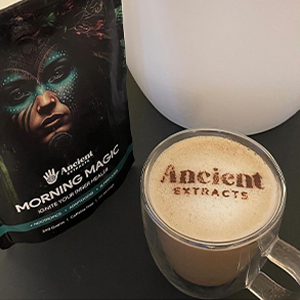
As more pet owners turn to natural remedies to support their pets’ health, medicinal mushrooms have emerged as a popular choice. From boosting the immune system to improving digestion, mushroom products offer numerous benefits for pets. However, it’s essential to introduce these supplements to your pet’s diet safely to avoid any adverse reactions. While mushroom supplements can enhance your pet’s well-being, understanding how to incorporate them properly is key to ensuring their health and safety.
In this blog, we’ll guide you through the steps of safely adding mushroom products to your pet’s diet, highlight the best mushrooms for pets, and discuss the health benefits they provide.
Why Mushroom Products Are Beneficial for Pets
Mushroom products are packed with bioactive compounds such as beta-glucans, antioxidants, and polysaccharides, which can help improve your pet’s overall health. These compounds are known for their immune-boosting, anti-inflammatory, and digestive-supporting properties, making them ideal for pets dealing with various health issues.
Some of the most beneficial mushrooms for pets include:
- Reishi: Known for its immune-enhancing and anti-inflammatory properties.
- Turkey Tail: Supports immune health and has been studied for its potential to combat cancer in pets.
- Lion’s Mane: Promotes neurological health and cognitive function.
- Cordyceps: Boosts energy levels and promotes respiratory health.
Steps to Safely Introduce Mushroom Products to Your Pet's Diet
Adding mushroom products to your pet’s diet can provide numerous health benefits, but it’s important to proceed with care. Here’s how to safely incorporate mushroom supplements into their daily routine for optimal results:
1. Start by Consulting Your Veterinarian
Before introducing any new supplement, including mushrooms, consult your veterinarian. They can advise on the best approach and confirm that mushroom products are suitable for your pet’s specific needs.
Each pet is unique, and factors such as age, weight, existing health conditions, and medications should be considered when determining the appropriate dosage and type of mushroom supplement.
2. Start with a Low Dose
When introducing mushroom supplements to your pet’s diet, start with a low dose to allow their body to adjust. Begin with half the recommended dose and gradually increase it over time. This approach helps you monitor your pet’s response and ensures that they tolerate the new supplement without any digestive issues or allergies.
3. Choose Pet-Specific Mushroom Products
While some mushroom products are safe for both humans and pets, it’s best to opt for mushroom supplements specifically formulated for animals. These products are dosed correctly for pets and free from additives or ingredients that could be harmful to them. Look for products that contain high-quality, organic mushrooms without fillers or preservatives.
4. Monitor Your Pet’s Response
As you add mushroom products to your pet’s diet, keep an eye on any changes in their behavior, appetite, or stool. Some pets may experience mild digestive upset when first introduced to mushrooms, but these symptoms should subside as they adjust. If your pet shows signs of discomfort, such as vomiting, diarrhea, or lethargy, discontinue the supplement and consult your veterinarian.
5. Incorporate Mushroom Supplements into Their Meals
To make it easier for your pet to consume mushroom supplements, mix the powder or liquid into their regular meals. Mushroom products typically have an earthy flavor that blends well with wet food, or you can dissolve them in water for easier consumption. If your pet is picky, start by mixing the supplement into a small amount of their favorite treat and gradually introduce it into their meals.
Health Benefits of Mushroom Products for Pets
When incorporated properly, mushroom supplements offer a range of health benefits for pets, including:
1. Enhanced Immune Function
Mushrooms like reishi and turkey tail are rich in beta-glucans, which help activate immune cells and boost your pet’s ability to fight off infections and illnesses.
2. Improved Digestive Health
Mushrooms such as lion’s mane support gut health by promoting a healthy balance of gut bacteria and reducing inflammation in the digestive tract, leading to better digestion and nutrient absorption.
3. Increased Energy and Stamina
Cordyceps mushrooms are known for their ability to boost energy levels and improve stamina, making them ideal for older pets or those recovering from illness.
4. Anti-Inflammatory Properties
For pets dealing with joint pain, arthritis, or inflammation, reishi mushrooms provide anti-inflammatory benefits, helping to reduce pain and improve mobility.
5. Support for Cognitive Health
As pets age, they may experience cognitive decline, much like humans. Lion’s mane mushrooms support neurological health and help improve focus, memory, and overall brain function in aging pets.
Final Thoughts
Adding mushroom supplements to your pet’s diet can provide significant health benefits, from boosting immune function to supporting digestion and cognitive health. However, it’s important to introduce these supplements gradually and monitor your pet’s response closely. Always consult with your veterinarian before starting any new supplement regimen, and choose high-quality, pet-specific mushroom products for the best results.
By following these steps, you can safely incorporate the healing power of mushrooms into your pet’s diet and help them thrive naturally.



